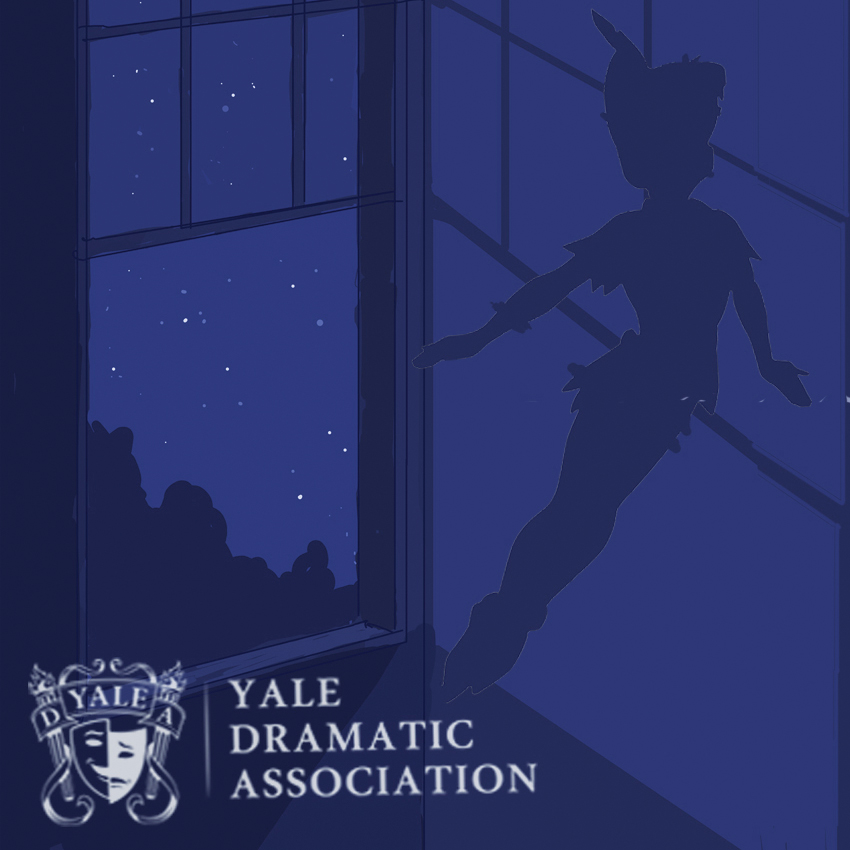
courtesy of the Yale Dramatic Association
In the Yale Dramatic Association’s annual FroShow, first years will retell the classic story of Peter Pan from Wendy’s perspective. “Lost Girl,” written by Kimberly Belflower, is a coming-of-age exploration of first love and loss. Performances will take place from Feb. 20 to 22 in the Iseman Theater.
The story focuses on Wendy several years after she leaves Neverland. Wendy decides that she must find Peter in order to reclaim her kiss and move on with her life. Along the way, Wendy meets other girls who went to Neverland and learns she is not alone in her journey.
Director Claire Donnellan ’23 said the story’s themes resonated with her since she is a first year. Just as Wendy is leaving her childhood behind, first years must forego childhood when starting college.
“I’m hoping [audience members] will be able to see themselves in Wendy’s story,” Donellan said. “This story is particularly relevant for first years, but I think everyone can relate to the themes of growing up and leaving home.”
Donnellan said it is exciting to see this classic story retold by a female playwright from Wendy’s point of view because of the general lack of stories told from female perspectives.
Donellan said that, because she has mostly worked on the production aspect of theater in the past, it was important to her to choose a show with many design opportunities, which involve both the production team and the cast.
For the set, the cast personalized the nursery by bringing in objects from their own childhoods. While designing props and costumes, the team attempted to create a “world outside of time.” The costumes neither resemble dress of the Victorian era, where the original story was set, nor the modern world.
According to Donellan, the large window at the center of the set is an important symbol in the play. The story opens with Wendy alone in the nursery, with the window open, waiting for Peter to come back. At the end of the play, she closes the window in a moment that symbolizes her “emotional recovery.”
“It’s about first love, learning how to leave that behind and grow past it,” Donellan said.
Eden Gorevoy ’23, who plays Wendy, said that Wendy’s choice to leave Neverland in spite of the challenges of growing up is significant in contrast to Peter’s identity as the “boy who never grows up.”
“Lost Girl” introduces the characters of A, B and C: girls who externalize Wendy’s emotions. These characters eventually “reintegrate” into Wendy’s mind when she finally becomes a mentally healthier person.
According to Donellan, A, B and C help direct the audience’s focus. They also symbolize the other girls who went to Neverland.
“Ultimately we’re building the character of Wendy with our own distinct personalities,” Gorevoy said. “All four of us are putting something unique into her and creating a really multifaceted person.”
Bradley Nowacek ’23, assistant director and dramaturg, said the playwright is skilled at finding the words and phrases that resonate with particular moments in the audience’s lives. Nowacek said dealing with the difficulty of maturity can be alleviated by hearing a familiar thought articulated well. “Hearing that out loud can be very powerful,” Nowacek said.
Gorevoy said the all first-year production team makes her feel comfortable when presenting her own ideas. Team members work together to find meaning in the narrative, as people who are the same age as Wendy.
“We’ve been really close because everybody’s on the same page, everybody feels new here,” Donellan said.
Gorevoy said she hopes the audience can appreciate how Wendy takes back the story for herself in the end. “I want that strength to leave with the audience,” Gorevoy said.
Shows will take place at 8 p.m. on Feb. 20, 7 p.m. on Feb. 21, 2 pm and 8 p.m. on Feb. 22 in the Iseman Theater at 1156 Chapel St.
Carrie Zhou | carrie.zhou@yale.edu







